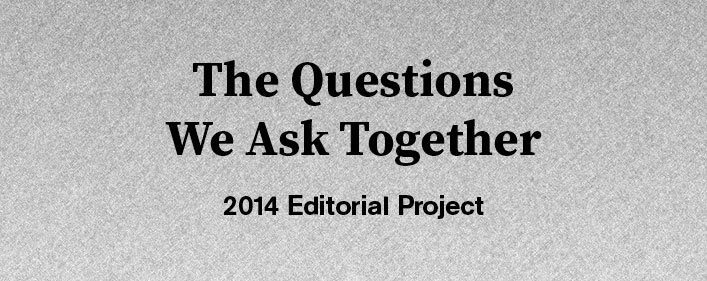Do I understand my privilege? How do I understand it better?
The questions, “Do I understand my privilege? How do I understand it better?” feel like a trap. In this context, I can never be left-y enough to escape the flaws of my birth and Canadian upbringing. As my Grandmother used to say I’m “fucked from the get go.” So let’s get started.
For me to even start answering the question requires a series of lists, a kind of personal accounting. At the end of which it will be revealed as to whether I owe something to this awareness or not. The questions are fairly obvious: How am I privileged or not? In what context do I have or maintain privilege? By virtue of what am I privileged? And so on. Whether “privilege” is understood in the first aspect of the question or not, it is certainly portrayed as something that can cleanly be tabulated, and once the counting has been completed, an understanding should be reached and an answer obvious. It isn’t.
I have had five weeks to ponder an answer to this question. I have worked through answers that range from self-reflection to self-flagellation, others that are so macro that they sound like pitches to readers of moveon.org or break downs of contemporary American class war, sexism, and racism. But it seems of little value that I either apologize for my circumstances or put up a kind of whiney defensive posture. After all, I’m an artist and live and work in the contemporary art world. A space where elitism is “the very fuel that fires the forge” and the competition for all kinds of capital is hard fought, and privilege is more bestowed then carried.
The problem is that privilege often doesn’t feel like privilege. It feels like access, or it feels like exclusion, and often our personal excursions have everything to do with our individual fear and our need for money.
The intent of the question of “understanding my privilege” looks for something I can never give it. It wants for me to have a sharable tool with which I can facilitate a reader’s understanding of their own privilege and a plan on how they might work to better empathize with others. But all my “smart” answers sound like clichéd references to the basics of Rousseau’s social contract or quotes from core humanist/pragmatist texts, and as such, are wholly unsatisfying.
I recognize that I have been significantly shaped by where I was born, opportunities I have had, and how others perceive me and my competencies. In that, I know both my agency and its edges. When I really consider the grand scale, I’m not sure I want to know “my privilege” better because looking at it means being paralyzed by the vastness of human experience and sickened by how most of us choose to use our lives to take things rather than build them. What I know, is that I want to work towards an equality of education, health, and opportunity, and towards a shared awareness of our collectivity that pushes far beyond skin tone, genitals, a parent’s money or with whom you spend your sexy time. Maybe we can do that together?
About the contributor:Duncan MacKenzie is a founder of Bad at Sports, an artist who collaborates with Christian Kuras, and a member of the Art and Foundations faculty of Columbia College Chicago. He is a ninja of culture, watch out.
